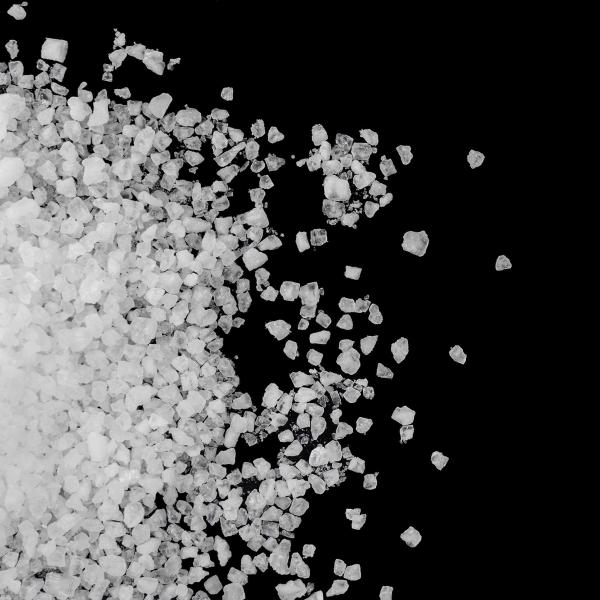CAS: 9001-63-2 | EC No.: 3.2. 1.17
CAS: 9066-59-5 | EC No.: 232-954-0
CAS: 12650-88-3 | EC No.: 232-954-0
A remarkable natural antimicrobial and antiviral enzyme. Since its discovery by Alexander Fleming in 1921, Lysozyme remains one of the most potent natural antimicrobial compounds identified to date. Perhaps best known for its presence in saliva and tears, Lysozyme holds a critical front-line defense role for plants and animals. Its potent bacteriolytic, bacteriostatic, and bactericidal action has made Lysozyme highly valued across broad industries, applied in products ranging from cheese, beer, and wine to toothpaste and eyedrops.
A 1-4-Beta-N-Acetylmuramidase comprising 129 amino acids, Lysozyme is a small enzyme that potently cuts Gram-positive bacteria's exposed outer protective peptidoglycan coating. This irreversibly ruptures bacterial cell walls by increasing their susceptibility to osmotic shock and mechanical stress. Nature has found a use for this property in fluids ranging from blood, sweat, and tears to mothers’ milk and egg whites. This abundance in hen’s egg-white was first identified in 1922, and it remains one of the most Lysozyme-rich sources known to man.
At Bioseutica®, we have been extracting nature’s best from eggs, including Lysozyme, since the 1950s. We have perfected our patented processes to deliver the highest purity standards without using solvents. We are the global leader and the only Lysozyme producer certified by the Pasteur Texcell Institute to avoid the avian flu virus.
Once extracted, our food-grade Lysozyme Hydrochloride is a non-toxic, microcrystalline, odorless powder with a subtly sweet taste. Available from free-range sources upon request, the remaining egg white goes on to be used to produce ice creams, cakes, and other foods.
Not just Gram-positive bacteria:
Lysozyme's best-studied, now classical bactericidal mechanism is its lysis of the peptidoglycan coat of Gram-positive bacteria. More recent studies have identified further capabilities of Lysozyme as an antiviral and antifungal, in addition to Gram-negative disrupting properties. Lysozyme is positively charged (cationic), so it is attracted to the negatively charged lipopolysaccharides (LPSs) of the outer membrane of Gram-negative bacteria1. This dampens the inflammatory reactions of Gram-negative bacteria2 and can permeate Gram-negative strains' inner and outer membranes, including E. coli 3,4.
Studies of Lysozyme's antiviral potential have shown promise against herpes virus5, HIV6, bovine diarrhoeal virus7, and foot-and-mouth strains8. Antifungal activity has been identified against Candida Albicans9, 10.
Lysozyme is highly effective in combating bacterial infections as a mucosal barrier. Recent research highlights its potential in COPD, diabetes, and viral infections. It can induce immunological responses. Oral administration of a specific variant called HEWL shows no toxicity. In a small clinical trial, patients reported no adverse events and experienced reduced winter colds. Lysozyme activates immune responses along the GALT and systemic immunity axis, extending from digestive mucosa to lymph nodes and promoting pharmacological responses. The mechanism behind this activation is unclear. However, lysozyme function in humans shows beneficial systemic effects in different study models, suggesting Lysozyme's effectiveness in stimulating immune responses in animals and humans15.
Lysozyme Applications:
Food: Increasing shelf-life, reducing spoilage, and bioactive packaging
The food industry has taken advantage of LYSOZYME's natural antimicrobial properties, incorporating it into processing methods and using it as a preservative. Bioseutica® has developed LYSOLAC®, LYSOVIN™, and LYSOBIER®, formulations of LYSOZYME tailored to cheesemaking, winemaking, and beer brewing. These are highly cost-effective approaches to protecting these precious products from spoilage, increasing their shelf-life, reliability of quality, and yield.
Lysozyme can also be an effective antimicrobial preservative for dairy products, yogurt16, fresh fruits, seafood, vegetables, fresh meats, processed meats, sushi, and noodles. This property has also been utilized in bioactive packaging, providing a protective coating that increases shelf-life and preserves the quality of packaged foods.
Lysozyme, when integrated into PVOH (polyvinyl alcohol) films, extends the release of antimicrobials, effectively inhibiting microbial activity. The introduction of lysozyme into whey protein films hinders the growth of Listeria monocytogenes in salmon. In zein-based films, lysozyme inhibits Lactobacillus plantarum and Bacillus subtilis' growth. Moreover, when lysozyme is injected into zein-film in combination with EDTA, it enhances the antimicrobial effectiveness against the Gram-negative bacteria Escherichia coli, resulting in an extended duration of food shelf life2.
The immobilization of Lysozyme Hydrochloride through adsorption notably enhances Lysozyme's antimicrobial properties against Gram-negative bacteria. Chitosan-lysozyme films exhibit remarkable antimicrobial activity against Escherichia coli and Enterococcus faecalis14. Lysozyme-conjugated nano cellulose demonstrates superior antifungal and antibacterial effects against strains such as Staphylococcus aureus, Candida albicans, and Escherichia coli.
Animal Health and Nutrition: Improving health and well-being grants greater yields
Lysozyme Hydrochloride is highly effective in animal health applications, providing antimicrobial protection while restoring microbiological balance. Recent in-vitro studies further demonstrate its capacity to partially inactivate foot-and-mouth disease virus (FMDV) strains, underscoring its potential value in safeguarding cattle herds.
Bioseutica® developed the immunity-boosting ENTEGARD® range through our in-house Lysozyme Hydrochloride production and applications expertise. These Lysozyme-based feed additives are now available in formulations specifically designed for poultry, swine, and aquaculture operations. Through its immune, nutrient absorption, and gut health-boosting properties, ENTEGARD® reduces mortality, improves animal health and wellbeing, and ultimately drives increased yield.
The ENTEGARD® range is highly valued by RWA (raised without antibiotic) operations. It allows producers to develop antibiotic-free (ABF) processes without sacrificing productivity. ENTEGARD® offers producers a practical, easy-to-use solution to the increasing consumer demand for antibiotic-free animal products.
Hygiene, Skincare, and Cosmeceuticals: The natural choice
Taking inspiration from nature, Lysozyme Hydrochloride finds practical applications in oral-care products for treating mouth ulcers, sore throat, and mouth sores. Lysozyme has also been incorporated into skin care treatments and eyedrops, augmenting the body’s antimicrobial mechanisms.
Bioseutica® offers a comprehensive range of Lysozyme-based products, including Lysozyme supplements, from those ready-formulated for specific applications to our pharmaceutical-grade API Lysozyme.
See below for more about our product range and innovations in animal well-being and nootropic food supplements.
Bioseutica® goes circular! Opportunities for West III program grant

Bioseutica® spearheads a project to craft an innovative lysozyme product, a bioactive protein tailored for the feed industry. This endeavor involves extracting lysozyme from residual feed streams. Dubbed Technical Lysozyme, this product will be manufactured within a circular framework that maximizes the utilization of valuable protein sources for the feed industry. The initiative receives financial support from the European Union through the EFRO program Opportunities for West III, which is dedicated to advancing the transition toward a fully circular and climate-neutral economy. A key milestone for this program is set for 2030, marking significant progress toward its overarching goals.
Regulatory:
Regulations may vary by country. Always check the local legislation regarding the usage and claims of this product.
References
- Ferraboschi, P.; Ciceri, S.; Grisenti, P. Applications of Lysozyme, an Innate Immune Defense Factor, as an Alternative Antibiotic | Publisher Site
- N. Nawaz, S. Wen, F. Wang, S. Nawaz,J. Raza, M. Iftikhar, M. Usman: Lysozyme and Its Application as Antibacterial Agent in Food Industry | Publisher Site
- Takada K et al.: Detoxification of lipopolysaccharide (LPS) by egg white lysozyme | Publisher Site
- Tagashira A. et al.: Lysozyme from hen egg white ameliorates lipopolysaccharide-induced systemic inflammation in mice | Publisher Site
- Derde M et al.: Hen Egg White Lysozyme Permeabilizes Escherichia coli Outer and Inner Membranes | Publisher Site
- Derde M et al.: Native lysozyme and dry-heated lysozyme interactions with membrane lipid monolayers: Lateral reorganization of LPS monolayer, model of the Escherichia coli outer membrane | Publisher Site
- Ferrari R.: Antiviral activity of Lysozyme Nature 1959 | Publisher Site
- Lee-Huang S et al.: Lysozyme and RNases as anti-HIV components in beta-core preparations of human chorionic gonadotropin | Publisher Site
- Malaczewska et al.: Antiviral effects of nisin, lysozyme, lactoferrin and their mixtures against bovine viral diarrhea virus | Publisher Site
- Fukai et al.: New possibilities for egg white lysozyme: heat-denatured lysozyme partially inactivates select foot-and-mouth virus strains | Publisher Site
- Sebaa S. et al.: Dose-dependent effect of lysozyme upon Candida albicans biofilm | Publisher Site
- Samaranayake Y et al.: Antifungal Effects of Lysozyme and Lactoferrin against Genetically Similar, Sequential Candida albicans Isolates from a Human Immunodeficiency Virus-Infected Southern Chinese Cohort | Publisher Site
- Dai, P.; Li, Q.: Lysozyme: Research progress in the application of lysozyme in food and medicine field - A review | Publisher Site
- Liburdi K., Benucci I., Esti M. Lysozyme in wine: An overview of current and future applications | Publisher Site
- Bergamo A, Sava G.: Pharmacological Modulation of Host Immunity with Hen Egg White Lysozyme (HEWL) | Publisher Site
- A. M. Abdou, A. El-Hadary, A. Osman, S. A. Bayoumi, G. B.A. Youssef e, D. A.B. Awad: Lysozyme under holder pasteurized denaturation enhances the antioxidant's stability and quality attributes of functional yogurt | Publisher Site
- W. Yang, C. Xi, H. Yao, Q. Yuan, J. Zhang, Q. Chen, G. Wu, J. Hu : Oral administration of lysozyme protects against injury of ileum via modulating gut microbiota dysbiosis after severe traumatic brain injury | Publisher Site
- Fukai, K., Inoue, K., Takeuchi, A. & Yamakawa, M. Heat-denatured lysozyme partially inactivates select foot-and-mouth disease virus strains. Scientific Reports 11, 526 (2021) | Publisher Site



